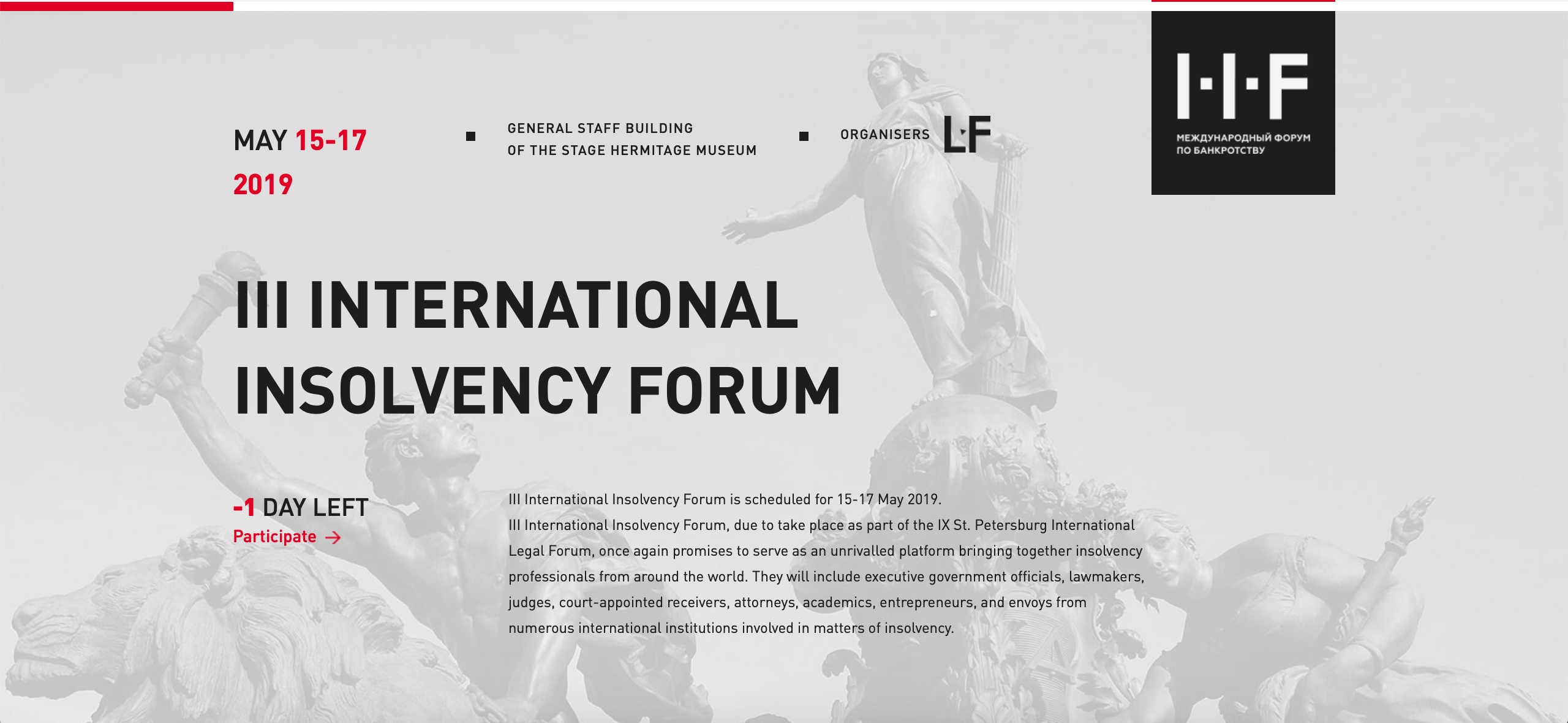Implementation of Rescue Culture (chaired by the INSOL Europe) – May 16th, 12:00-13:30
Where liquidation used to be a standard in insolvency proceedings, a new era has developed in the insolvency practice; rescue rather than liquidation.
According to the European Commission’s assessment in 2016, every year about 200 000 firms in the European Union go bankrupt, resulting in over 1.7 million people losing their jobs.
The proposal on preventive restructuring frameworks was presented by the Commission on 22 November 2016. The overall objective of the text is to reduce the most significant barriers to the free flow of capital stemming from differences in member states’ restructuring and insolvency frameworks and to enhance the rescue culture in the European Union. In doing so, the proposal aims to strike an appropriate balance between the interests of the debtors and the creditors.
The most important points are the following:
- Access to preventive restructuring frameworks
- Appointment of the practitioner in the field of restructuring
- Stay of individual enforcement actions
- Cross-class cram-down mechanism
Members States shall ensure that effective preventive restructuring framework are available for debtors in financial difficulty when there is a likelihood of insolvency, but there is also a fear that debtors with no prospect of viability will largely apply for these tools which would cause unnecessary delays of the opening of an insolvency procedure and would risk decreasing the value of the estate.
Thus, the European Parliament proposes to allow the Member States who deem it necessary to introduce a viability test as a condition for access to preventive restructuring frameworks, provided that this test is carried out without detriment to the debtor’s assets. The absence of detriment does not exclude however the possibility to require debtors to prove their viability at their own costs.
The session will also cover different issues related to rehabilitation procedures in the Russian Federation, such as a financial sanation, an administration, an amicable agreement. Representatives of the Russian insolvency community, together with their foreign colleagues, will share their expertise in de jure and de facto business rehabilitations, will speak on a real business rescue in the course of bankruptcy proceedings, and present the cases of successful rehabilitation procedures based on all possible scenarios (an amicable agreement at the supervision stage, an amicable agreement at some other stage, an administration, a receivership based on leasing or custody).
CO-MODERATORS:
Co-opted Director, Co-chair, Eastern European Countries’ Committee, INSOL Europe; Council, Clifford Chance, Netherlands
Co-chair, High-Level Course on Insolvency, INSOL Europe
SPEAKERS:
Co-Chair, Insolvent Financial Institutions Subcommittee, IBA Insolvency Section; Partner, De Berti Jacchia Law Firm, Italy
Vice-President, Insolvency Practitioners Association; Director, Benedict Mackenzie, UK
Head, Advisory Council, Russian Union of Self-Regulated Organizations of Arbitration Managers
Member of Board, Russian Union of Self-Regulated Organizations of Arbitration Managers; Chairman, Self-Regulated Organization of Arbitration Managers “Merkuriy”


